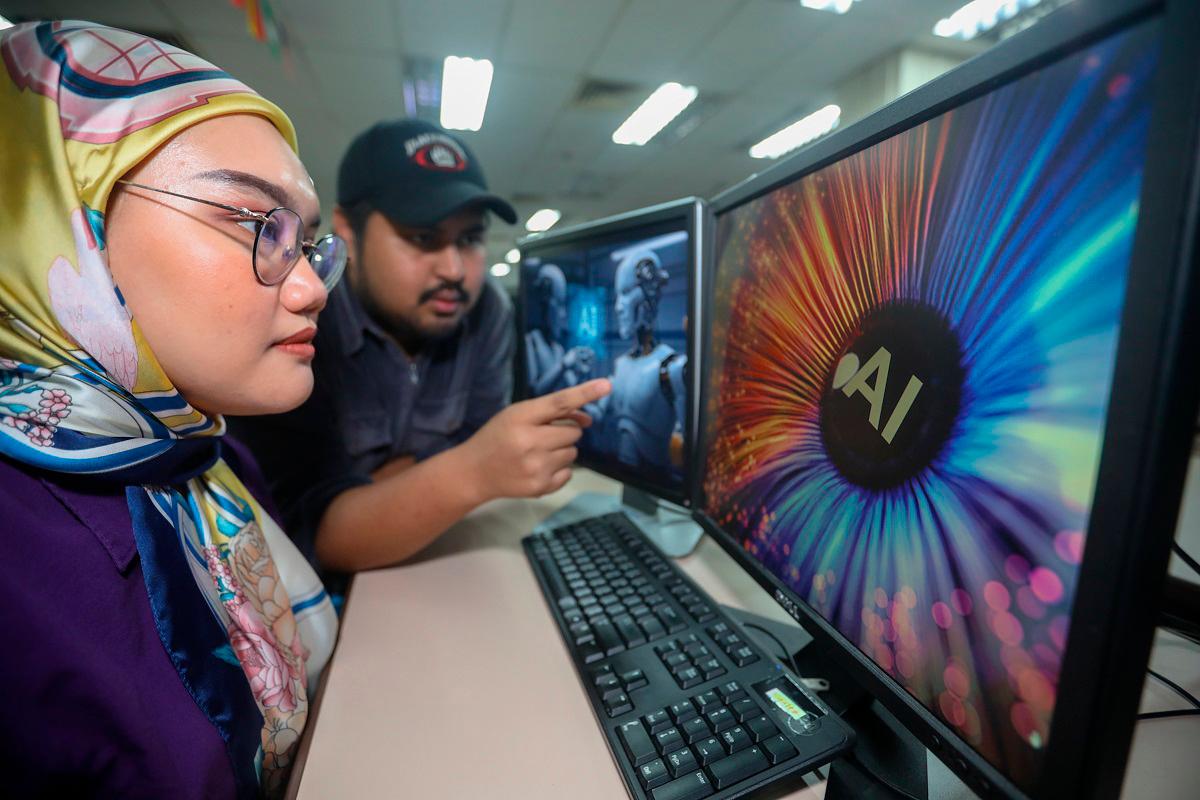PETALING JAYA: As Malaysia drafts its National Artificial Intelligence (AI) Action Plan for 2026–2030, experts have raised concerns over critical gaps in talent and legal safeguards that could derail the country’s AI ambitions.
Universiti Teknologi Malaysia Centre for Artificial Intelligence and Robotics Assoc Prof Dr Zool Hilmi Ismail said the nation currently faces a shortage of about 10,000 workers with AI skills – a gap he warned could hinder progress before the plan even takes off.
“The AI talent pool is growing, but it’s still far from enough. Many graduates still lack skills in areas such as AI operations, chip design, advanced computing and AI ethics.”
Zool stressed the need for more hands-on training, targeted scholarships and robust public-private partnerships to close the skills gap.
“We need a workforce that’s not just tech-savvy, but also understands the ethical risks that come with AI.”
Beyond talent shortage, Zool also pointed to technical barriers such as outdated data-sharing infrastructure, over-reliance on imported hardware and inadequate investment in cybersecurity.
“Our data is fragmented across government agencies and private companies, making it hard to integrate or use effectively,” he said, urging the government to invest in shared national databases and privacy-preserving technologies to enable responsible AI training. Even as Penang and Johor grow into regional data and chip hubs, we’re still too dependent on imported semi-conductors and foreign cloud services. That poses strategic risks.”
Zool emphasised that AI systems funded by the government must be safe, transparent and aligned with public values. He called for ethical standards and regular audits to ensure that AI remains fair, reliable and privacy-conscious.
He said universities are already training lecturers under the national TVET programme to equip them with real-world AI skills, adding that universities must work with the industry to support AI startups and offer recognised certifications.
“But for any of this to succeed, government, academia, business and the public must move as one.”
He also cautioned that irresponsible AI deployment can result in real-world harm, from biased hiring systems and faulty medical diagnoses to scams and data breaches.
International Islamic University Malaysia (IIUM) Ahmad Ibrahim Kulliyyah of Laws senior lecturer Assoc Prof Dr Mahyuddin Daud highlighted the legal and ethical underpinnings needed for a credible AI framework.
“The action plan must be grounded in fairness, transparency and accountability. There must be clear laws to address harm or negligence involving AI, especially when fundamental rights are at stake.”
Mahyuddin also urged the government to legislate against deepfakes, fake content and online manipulation, adding that tech platforms should be held responsible for detecting and removing such content with penalties for misuse.
Without proper safeguards, he warned, AI could compromise privacy and erode public trust.
He proposed the creation of a multi-stakeholder council comprising regulators, tech experts, academics and civil society representatives to guide AI policymaking and uphold ethical standards.
Mahyuddin also called for a dedicated AI law and the establishment of an independent oversight body with the authority to investigate, regulate and ensure redress for those harmed by AI-driven decisions.
Both experts agreed that while the AI roadmap must be ambitious, it must also be rooted in strong governance and accountability.
The National Artificial Intelligence Office, under the Digital Ministry, began soliciting public feedback on the action plan on July 1. Malaysians are encouraged to share their views, concerns and hopes on how AI should be developed.









